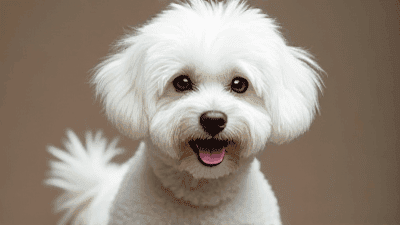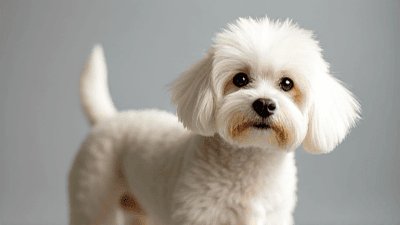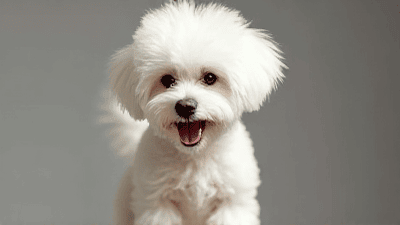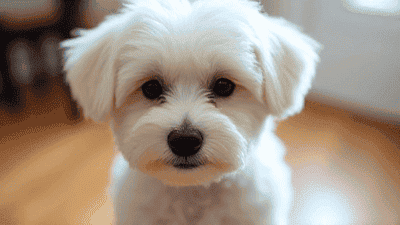The Bichon Frise is a small, cheerful, and fluffy breed that has captured the hearts of dog lovers worldwide. Known for their playful personality and charming appearance, these little dogs make excellent companions for families, singles, and seniors alike. However, owning a Bichon Frise requires a commitment to their unique grooming and care needs.
1. Breed Overview: The Bichon Frise
History of the Bichon Frise
The Bichon Frise originated in the Mediterranean region and was popularized in Europe during the Renaissance. They were favored by royalty and often featured in paintings from the 14th to 16th centuries. The breed’s name, “Bichon Frise,” translates to “curly lap dog” in French, reflecting their fluffy coat and affectionate nature.
Physical Characteristics
- Size: Small, typically weighing between 10 and 18 pounds and standing 9 to 12 inches tall.
- Coat: A double-layered, soft, and curly coat that is hypoallergenic and low-shedding.
- Color: Pure white, though some may have cream, apricot, or gray markings.
- Eyes: Dark, round, and expressive.
- Tail: Curled over the back.
Temperament
The Bichon Frise is known for its friendly, affectionate, and playful personality. They are:
- Social: Bichons thrive on human interaction and get along well with children, other pets, and strangers.
- Intelligent: They are quick learners and enjoy activities that challenge their minds.
- Adaptable: Bichons do well in various living situations, from apartments to larger homes.
- Cheerful: Their joyful demeanor makes them excellent therapy and emotional support dogs.
2. Grooming the Bichon Frise
Why Grooming Is Essential
The Bichon Frise’s curly, fluffy coat requires regular grooming to prevent matting, tangles, and skin issues. Proper grooming also helps maintain their hypoallergenic quality and keeps them looking their best.
Daily Brushing
- Tools: Use a slicker brush and a wide-toothed comb.
- Technique: Brush in sections, starting from the skin and working outward to remove tangles and debris.
- Frequency: Daily brushing is ideal to keep the coat free of mats and tangles.
Regular Bathing
- Frequency: Every 3 to 4 weeks, or as needed.
- Shampoo: Use a gentle, dog-specific shampoo to avoid drying out their skin.
- Drying: Thoroughly dry the coat with a blow dryer on a cool setting to prevent dampness, which can lead to skin infections.
Professional Grooming
- Trimming: Schedule professional grooming every 4 to 6 weeks to maintain the breed’s signature round, fluffy appearance.
- Sanitary Trim: Keep the area around the eyes, ears, and bottom trimmed for hygiene.
- Coat Styles: The Bichon Frise is often groomed in a “puppy cut” for low maintenance or a “show cut” for a fuller, fluffy look.
Additional Grooming Needs
- Ears: Clean the ears weekly to prevent infections.
- Teeth: Brush your Bichon’s teeth daily to prevent dental issues.
- Nails: Trim the nails every 3 to 4 weeks to avoid overgrowth and discomfort.
3. Caring for Your Bichon Frise
Nutrition
- High-Quality Diet: Feed your Bichon Frise a balanced, high-quality diet formulated for small breeds.
- Portion Control: Monitor portion sizes to prevent obesity, as Bichons can be prone to weight gain.
- Hydration: Always provide fresh water.
Exercise
- Daily Walks: Take your Bichon for 20 to 30 minutes of walking or playing each day.
- Interactive Toys: Use puzzle toys to keep your Bichon mentally stimulated.
- Playtime: Engage in games like fetch or tug-of-war to keep them active.
Training
- Positive Reinforcement: Use treats and praise to reward good behavior.
- Socialization: Expose your Bichon to various people, pets, and environments from a young age to build confidence.
- Basic Commands: Teach commands like “sit,” “stay,” and “come” for safety and obedience.
Mental Stimulation
- Training Games: Incorporate training into playtime to keep your Bichon engaged.
- New Experiences: Introduce new toys, environments, and activities to prevent boredom.
4. Health Considerations for the Bichon Frise
Common Health Issues
- Allergies: Bichons can be prone to skin and food allergies.
- Dental Problems: Regular dental care is essential to prevent periodontal disease.
- Luxating Patella: A condition where the kneecap dislocates, causing lameness.
- Hip Dysplasia: A hereditary condition that affects the hip joint.
- Cataracts: Can lead to vision loss if untreated.
Preventive Care
- Regular Checkups: Schedule annual vet visits to monitor your Bichon’s health.
- Vaccinations: Keep vaccinations up to date to protect against common diseases.
- Parasite Prevention: Use flea, tick, and heartworm preventatives as recommended by your vet.
Signs of Health Problems
- Lethargy: Unusual tiredness or lack of energy.
- Loss of Appetite: Refusing to eat or drink.
- Behavioral Changes: Increased aggression, anxiety, or restlessness.
- Coughing or Sneezing: Persistent coughing or sneezing may indicate respiratory issues.
- Limping: Difficulty walking or lameness.
5. Living with a Bichon Frise
Indoor Living
The Bichon Frise is well-suited to indoor living and thrives in environments where they can be close to their family. They are adaptable to apartments or larger homes, as long as they receive enough exercise and attention.
Climate Considerations
The Bichon Frise’s coat provides some insulation, but they are sensitive to extreme temperatures. In hot weather, keep them cool and hydrated, and in cold weather, protect them with a sweater or coat.
Traveling with Your Bichon
Bichons are excellent travel companions and enjoy being with their owners. Use a secure carrier or harness when traveling by car or plane.
6. Finding a Bichon Frise
Adoption
Consider adopting a Bichon Frise from a rescue organization or shelter. Many Bichons are looking for loving homes.
Choosing a Breeder
If you decide to buy from a breeder, choose a reputable one who prioritizes the health and well-being of their dogs. Ask for health clearances and meet the puppy’s parents if possible.
Cost of Ownership
The initial cost of a Bichon Frise can range from 800 to 2,000 dollars, depending on the breeder. Ongoing costs include food, grooming, veterinary care, and supplies.
7. The Joy of Owning a Bichon Frise
Companionship
The Bichon Frise’s affectionate nature makes them wonderful companions. They form strong bonds with their owners and thrive on love and attention.
Entertainment
Their playful and cheerful personality ensures that life with a Bichon is never dull. They love to play and make people laugh.
Emotional Support
Bichons are often used as therapy and emotional support dogs due to their calming presence and ability to connect with people.
Conclusion
The Bichon Frise is a delightful breed that brings joy and companionship to any home. While their fluffy coat requires regular grooming, their loving personality and adaptability make them a rewarding pet for dedicated owners. By understanding their unique needs and providing proper care, you can ensure your Bichon Frise lives a happy, healthy, and fulfilling life. Whether you’re a first-time dog owner or an experienced caregiver, the Bichon Frise is sure to become a beloved member of your family.



